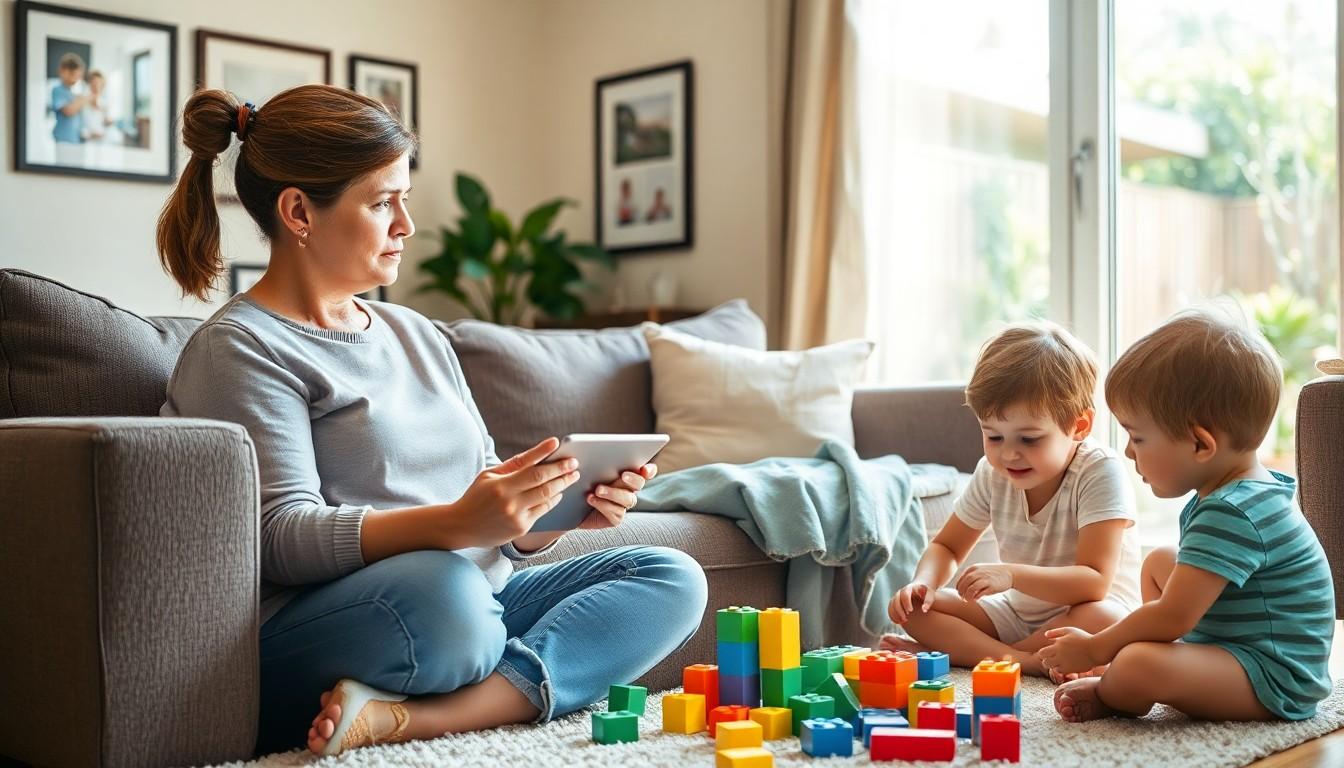Table of Contents
ToggleIn a world where screens seem to have taken over, parents are faced with a dilemma: how much is too much? Kids today are practically born with a tablet in their hands, and while technology has its perks, it’s essential to hit the brakes before they turn into screen zombies. Limiting screen time can feel like trying to wrestle a greased pig, but the benefits are worth the effort.
Imagine a life where kids engage in real-life adventures instead of just virtual ones. By cutting back on screen time, parents can encourage creativity, boost social skills, and even help their little ones discover the joys of the great outdoors. So, let’s dive into why dialing down the screen time could be the best decision parents make for their kids’ health and happiness. After all, who wouldn’t want to trade a few hours of scrolling for some good old-fashioned fun?
The Impact of Screen Time on Children
Screen time significantly affects children, influencing both physical and mental health. Prioritizing limited screen usage fosters healthier development.
Physical Health Effects
Excessive screen time leads to various physical health issues among children. Studies reveal that children with more than two hours of screen exposure daily experience higher obesity rates. Increased sedentary behavior contributes directly to weight gain and related illnesses. Eyestrain is another common issue, resulting from prolonged screen usage. Symptoms like headaches and blurred vision often arise. Poor posture during screen use can lead to musculoskeletal problems, affecting growth. Encouraging regular breaks and outdoor play minimizes these health risks effectively.
Mental Health Consequences
Increased screen time correlates with mental health challenges in children. Research indicates that those who spend over three hours daily on screens show increased signs of anxiety and depression. Social isolation often stems from excessive engagement with digital devices. When children prefer screens over face-to-face interactions, their social skills may lag. Sleep disturbances, caused by blue light emission, disrupt rest patterns, leading to irritability and focus issues. Encouraging alternative activities can enhance children’s mental well-being and foster meaningful connections.
Developmental Concerns

Excessive screen time affects children’s development in multiple ways. Cognitive skills suffer when kids prioritize screens over engaging activities. Research shows that too much screen exposure negatively influences attention spans. Children exposed to screens for over three hours daily demonstrate lower academic performance. Engaging in reading or hands-on activities enhances critical thinking and problem-solving abilities.
Social skills also face challenges due to heavy screen use. They miss out on essential face-to-face interactions while glued to screens. Strong social connections develop through in-person communication, which is limited when screens dominate. Studies indicate that children with high screen time report feelings of loneliness. Encouraging regular, structured playdates enhances social skills and emotional intelligence. Promoting real-life interactions leads to healthier relationships and emotional well-being, vital for child development.
The Role of Parents in Screen Time Management
Parents play a crucial role in managing their children’s screen time. By setting clear expectations and limits, they can help promote healthier habits.
Setting Boundaries
Establishing limits on screen time creates a structured environment for children. Parents should determine daily usage recommendations, such as two hours for recreational use. Implementing device-free zones, like dining areas, fosters family interaction. Regularly reviewing and adjusting screen time guidelines is vital to reflect children’s changing needs. Parents who engage in open discussions with their kids about screen use foster understanding. Leading by example encourages children to follow established boundaries.
Encouraging Alternative Activities
Promoting alternative activities enhances children’s engagement in real-world experiences. Parents can introduce hobbies like sports, arts, and reading as effective substitutes for screen time. Scheduling family outings or playdates cultivates social skills and connections. Participating in physical activities, such as biking or hiking, benefits health and well-being. Parents who provide diverse, fulfilling options support the development of well-rounded individuals. Encouragement of other interests balances screen usage, resulting in happier, healthier children.
Recommendations for Screen Time Limits
Managing screen time effectively requires specific guidelines and practical tips tailored for parents. These recommendations foster healthier habits for children and prioritize well-being.
Age-Specific Guidelines
For children aged 2 to 5 years, limit screen time to one hour of high-quality programming daily. This age group benefits from content that promotes learning and development. Preschoolers need playtime that fosters creativity, so maintaining a balance of activities is essential. Children aged 6 years and older should have consistent limits on daily screen usage. It’s important to monitor the nature of content consumed, ensuring it’s age-appropriate and educational. Screen time must not interfere with sleep, physical activity, or homework, reinforcing the importance of a well-rounded daily routine.
Tips for Parents
Establishing screen time rules starts with parents setting clear boundaries. Designate specific times for device usage and encourage consistent routines. Engaging in open conversations about screen time allows children to express their thoughts and feelings. Promoting screen-free zones, like bedrooms and dining areas, helps minimize distractions. Additionally, parents can model healthy screen habits, demonstrating moderation in their own usage. Encouraging alternative activities, such as outdoor sports, reading, and family game nights, can enhance children’s development and enrich their experiences outside the digital world.
Conclusion
Limiting screen time is essential for children’s overall well-being. By taking proactive steps to reduce screen exposure parents can foster healthier habits and promote real-life interactions. This not only enhances physical and mental health but also supports essential developmental skills.
Encouraging alternative activities such as sports and arts helps children build creativity and social connections. With clear boundaries and open discussions about screen use parents can create a nurturing environment that prioritizes growth and development. Ultimately by managing screen time effectively parents empower their children to thrive in a balanced and fulfilling way.






